Letters from Children

Abrahamson was known for working more hours than anyone else in the state capitol. After visiting with a school group, one student asked her: “How much sleep do you get each day?”

Abrahamson was known for working more hours than anyone else in the state capitol. After visiting with a school group, one student asked her: “How much sleep do you get each day?”
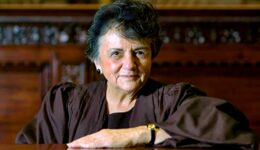
In 2004 Abrahamson served as president of the National Conference of Chief Justices and chaired the board of directors for the National Center for State Courts.
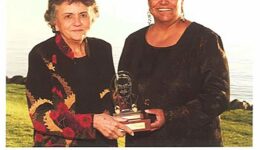
In 2004 the American Judicature Society selected Abrahamson to receive its first Dwight D. Opperman award for Judicial Excellence. The award honors judges whose written opinions “make clear that the bench, bar, and community alike would willingly entrust that judge with the most complex cases of the most far-reaching import.”
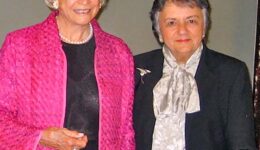
Abrahamson and U.S. Supreme Court Justice Sandra Day O’Connor believed in the importance of judicial independence. They stressed that the judiciary is a separate, co-equal branch of government. Judges must make decisions free from political, monetary, and outside influences. Both worked tirelessly to educate the public on this issue.
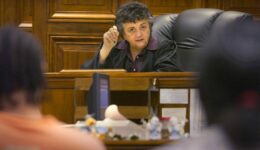
In 2002 Abrahamson wanted to gain a better understanding of the challenges trial judges face. So she served as a circuit court judge in small claims court. The Wisconsin Supreme Court takes months to decide cases. A small court judge hears and decides cases every 15 minutes.

In 1997 Abrahamson was elected a fellow of the American Academy of Arts and Sciences, which honors achievement in science, scholarship, the arts, and public affairs. Its members include Justice Ruth Bader Ginsburg, Saul Bellow, Norman Mailer, and Toni Morrison.

Abrahamson believed that a strong, independent judiciary depends upon an informed citizenry. To help young people understand the Wisconsin court system and how judges decide cases, she developed a curriculum called “Tootsie the Goldfish.” Now it’s an educational game.
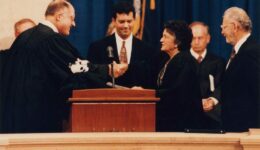
In 1996 Shirley Abrahamson became the first woman chief justice of the Wisconsin Supreme Court. The Honorable William H. Rehnquist, chief justice of the U.S. Supreme Court and a native of Wisconsin, administered her oath of office.
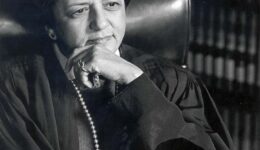
During an oral argument, Abrahamson questioned a lawyer who was so nervous, he fainted and fell to the floor. Afterward she wrote him a note: “I hope this day will be easier for you to forget than it will be for me. Most important, I trust that your indisposition was of a temporary and not a serious nature.”